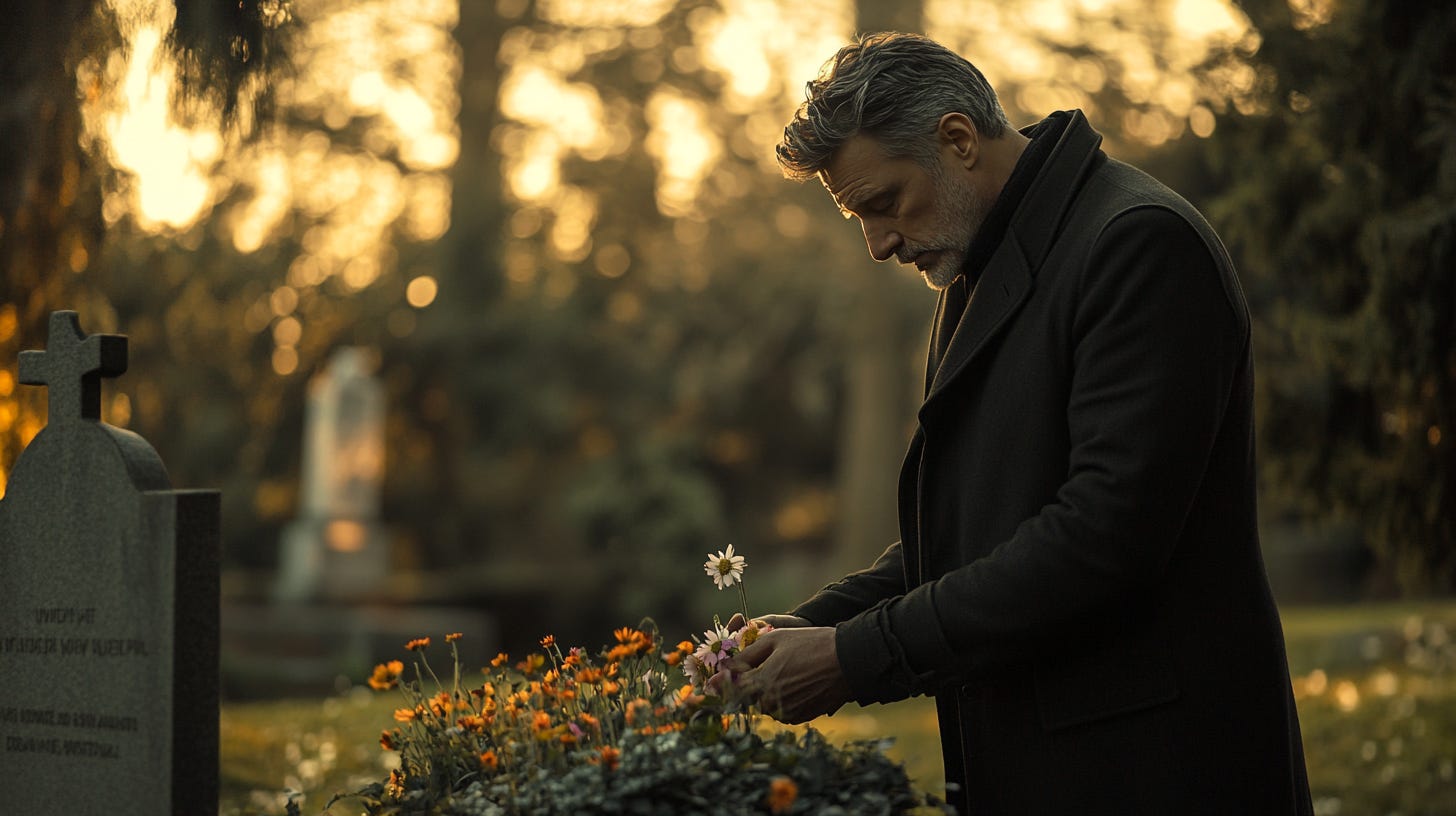I used to think we move on by forgetting.
But then I realized that memory isn’t something we let go of—it’s something we carry differently.
So I stopped trying to erase the past and started learning how to hold it without letting it hold me.
Not every story needs a resolution.
Sometimes, the power is in the lingering.
I used to think we move on by forgetting.
By sealing the past inside an unbreakable vault, by locking grief and resentment away so tightly that they could never reach me again. For years, I convinced myself I had succeeded. I had buried it—deep, airtight, impenetrable. A sarcophagus, like Chernobyl.
I didn’t just bury my grief—I sealed it off, radioactive and untouchable.
For the longest time, I carried resentment. Resentment for my mother’s emotional distance. For her illness. For her death. She had fed me, clothed me, made sure I got to school on time. But love—the kind that felt warm, nurturing, open—I never felt that from her. And I assumed the reason was me.
I saw something shift in my brother after he left for university. He needed her, and suddenly, she was there for him in a way she never had been for me. I thought, maybe that’s just how she is—maybe when I leave home, when I become someone worth missing, she will meet me where I am.
But I never got the chance to find out.
By the time I was old enough to leave, she was already gone. I was 17 when she died, a year before I stepped into the life I had imagined would bring us closer. But I had been too late. The version of her I had longed for was lost before I ever had the chance to reach her. There was no time left for change, no possibility of reconnection. The door had closed before I ever had the chance to walk through it. And in place of that hope, resentment grew. It hardened.
I didn’t know what to do with that disappointment, so I did what I had always done—I carried it. I wrapped it in silence, in distance, in the belief that if I didn’t look at it, it would disappear. But resentment doesn’t stay buried—it lingers in the way we brace ourselves for rejection, in the absence of softness where softness should be. It wasn’t gone; it was waiting.
And then, I realized: I was the one still carrying her absence like a wound that refused to close.
It wasn’t a single epiphany that changed me, but a series of small, deliberate choices. A guided meditation where, for the first time, I let grief sit beside me instead of locking it away. A workshop where I returned to those memories with the wisdom of who I am now. A personal growth initiation where I saw, with a clarity I hadn’t before, that my mother had loved me—the only way she knew how.
She had given me something. Strength. Work ethic. The ability to survive. It wasn’t the love I wanted, but it was the love she was capable of giving.
And maybe, just maybe, I could offer that same grace to myself—to the child who had longed for more, to the adult who had carried that weight for far too long.
Forgiving her was one thing. Forgiving myself—for carrying that resentment for so long, for holding onto it even when I didn’t have to—that took longer. But with time, the weight began to lift—not all at once, but in moments. In choosing tenderness over anger. In releasing the breath I didn’t know I was holding, feeling the tightness in my chest loosen. In remembering without resentment.
I had been dragging an anchor. And I was the one who had to let it go.
I used to think we move on by forgetting.
But then I realized that memory isn’t something we let go of—it’s something we carry differently.
So I stopped trying to erase the past and started learning how to hold it without letting it hold me.
Maybe we all carry memories we don’t know how to hold. Maybe the past isn’t meant to be buried, but softened—turned over in our hands until it no longer cuts us.
I used to think the past had to be buried to be left behind. But now, I know: not every story needs a resolution. Some memories aren’t meant to be let go of—they are meant to be held, differently. Like the way I now speak of their grave as my mother’s, too. Like the photo of her, framed and visible, where before there was none.



I loved this beautifully written essay. I can relate in so many ways but also realize that I have never reached the level of clarity that you have, Robert. Your essay is helping me do that. Thank you.
We need to agree to disagree on that one, Sharon. Your decision to leave your corporate career and found Great Dames, and all that you've done since then shows a clarity of purpose beyond words.